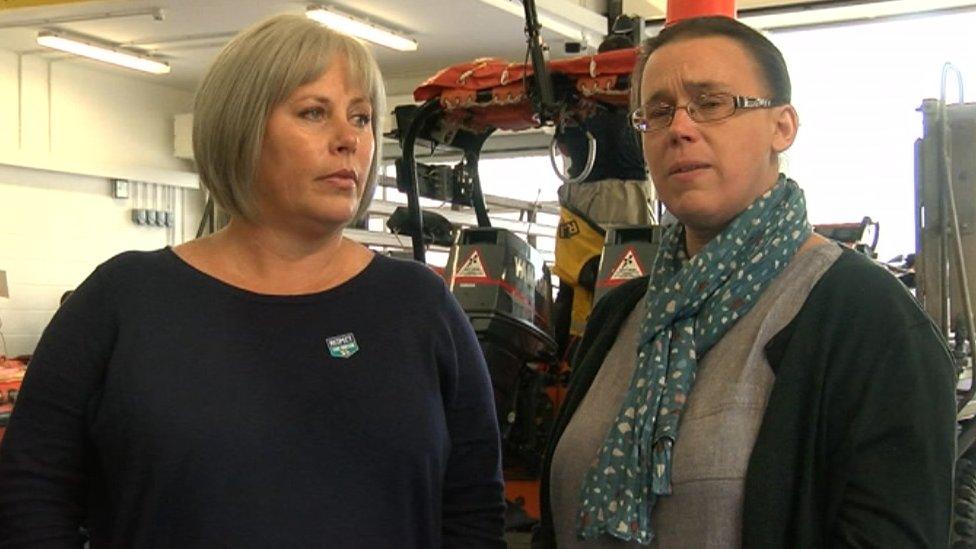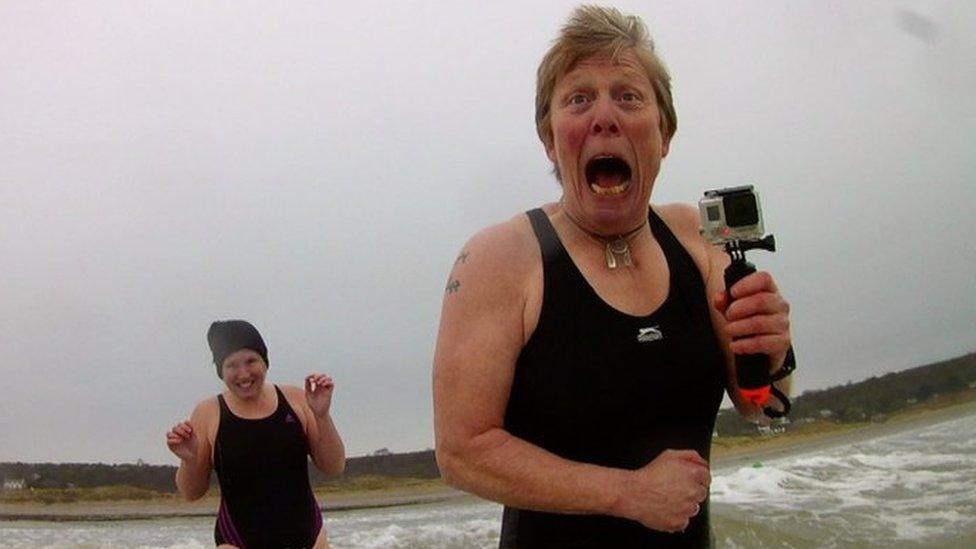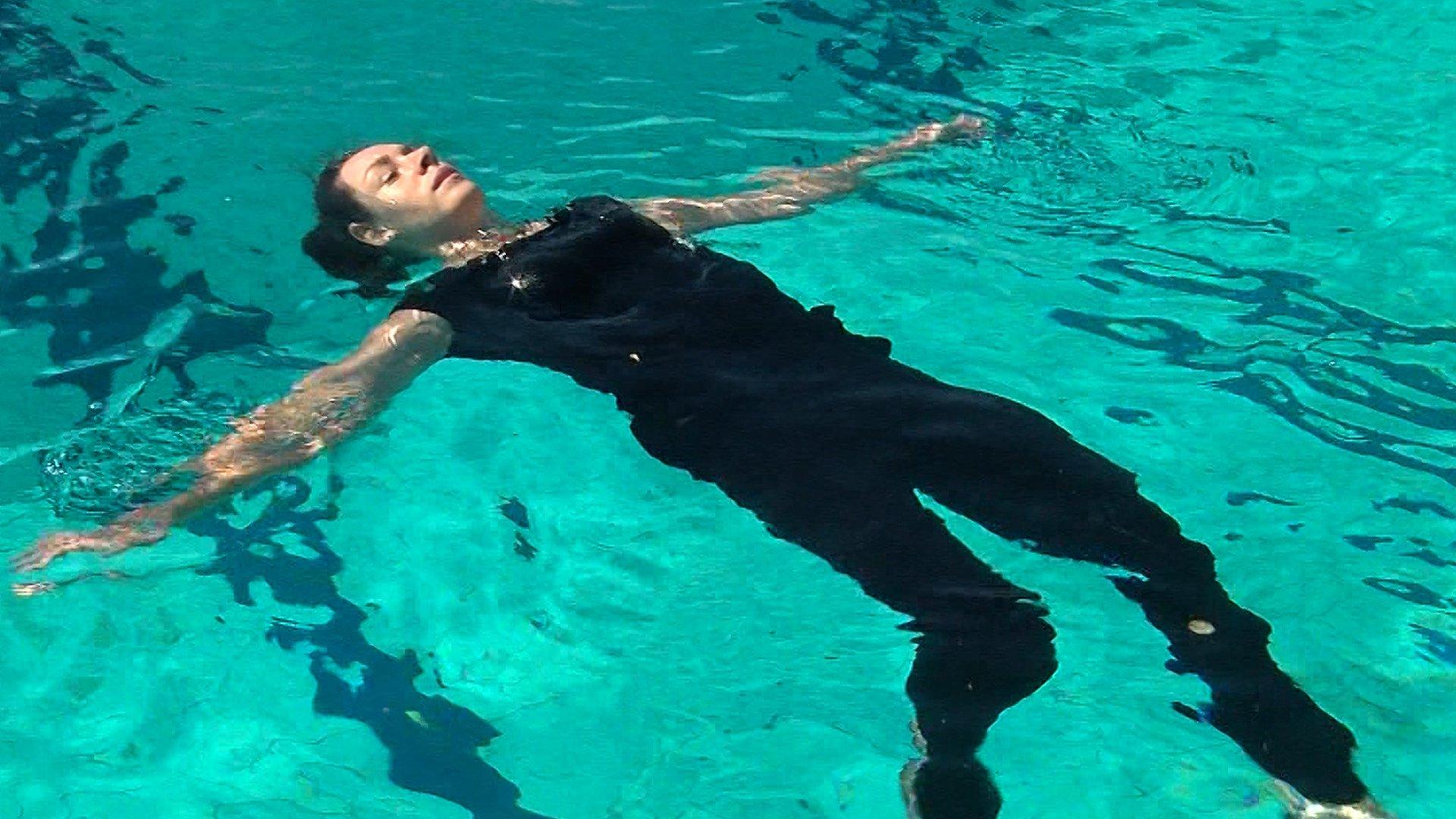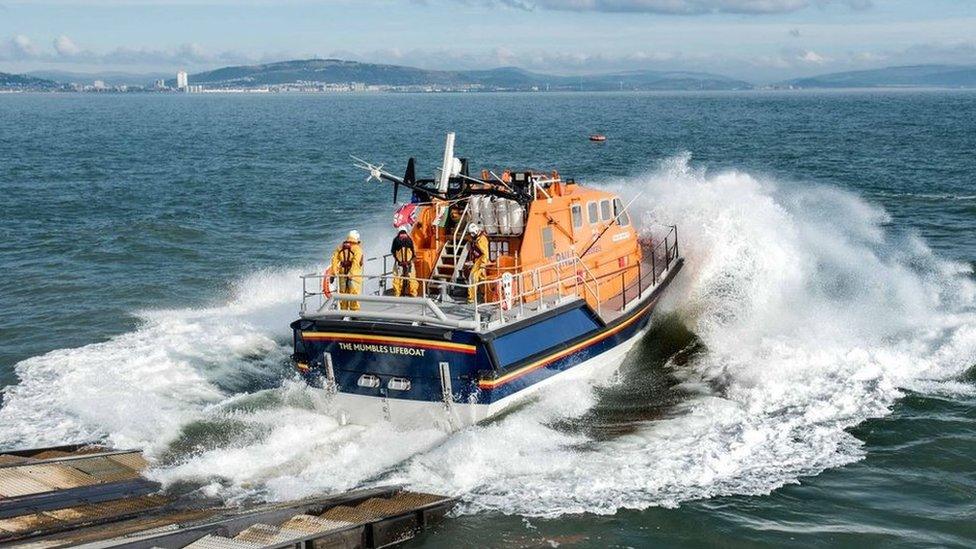RNLI 'float' advice after 18 deaths off Welsh coast
- Published
Jude Rees was told to relax and float on his back when he was pulled away by the current
Knowing what to do if you get into trouble in the sea "can be the difference between life and death", a charity has said.
There were 18 deaths in Wales in 2018, according to the RNLI's annual coastal fatality figures, up from an average of 15 deaths annually since 2014.
Its annual safety message urges people to "fight your instinct" to swim hard and "relax and float on your back".
Parents of Jude Rees, 10, believe it saved him off the Gower coast in 2018.
Confident swimmer Jude, then aged nine, and his family were at Blue Pool Bay when he was caught by a strong current which pulled him away from the shore where he had been paddling in August.
Paul and Clair tried desperately to help their son, along with one of Jude's older brothers, as others rang the coastguard.
Experienced sea swimmer Ceri Saunders was walking nearby and dived into the sea to reach Jude.
But as she was unable to tow him to shore against the current, she advised Jude to relax and float on his back.

Rescuer Ceri Saunders and Jude's mum Clair are helping the RNLI to launch its safety campaign
"There are no words to say how grateful [we] are for what Ceri did for our son and our family," said Mrs Rees.
"It was amazing. Ceri told him to swim on his back. He did exactly as he was told even though he was dragged out further."
Jude's dad said he had "no doubt that the advice helped to save him that day".
Ms Saunders said it was a "frightening" experience but she remembered a life-saving course she completed years ago that told her "the best chance of survival" was to float on your back.
"Thankfully, Jude followed instructions and it was a successful end to the story," she said.

Watch reporter Natalie Crockett try out the RNLI floating technique
The RNLI's Respect the Water drowning prevention campaign advises:
If you fall into water, fight your instinct to swim until the cold water shock passes
Lean back, extend your arms and legs
If you need to, gently move them around to help you float
Float until you can control your breathing
Only then, call for help or swim to safety

The pair were rescued by volunteers from the RNLI Burry Port lifeboat station.
The RNLI said the spike in deaths last year, compared with eight in 2017, could be attributed to the prolonged hot weather.
Men accounted for all but one of the deaths - 39% were aged 36-50 and 28% were 19-35.
Chris Cousens from the RNLI said: "Many of the tragic deaths at the coast can be avoided if people understand the risks and prepare themselves by practising the float technique, external."
- Published8 February 2019

- Published25 May 2017

- Published1 August 2017
